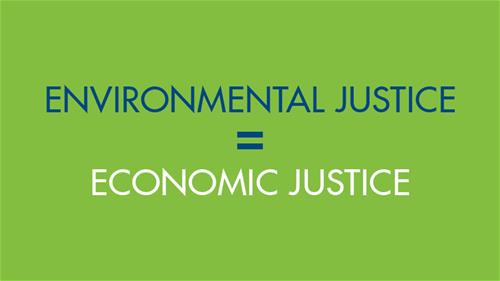
What do you think of when you imagine a low-carbon, clean energy future? You might imagine solar panels on your house or driving an electric vehicle. Do you also imagine grassroots activists showing up at Utility Commission hearings and wresting democratic control from stodgy rural electric cooperatives?
Last week attendees of the Just Energy Summit imagined all that and more. The virtual conference focused on how racial inequities play out in the energy sector, imposing disproportionate costs and greater health risks on Black communities and other communities of color. Organized by Partnership for Southern Equity, the Just Energy Summit brought together activists, scientific, and policy experts to educate and share ideas for change. The event shone a light on how the threads of pollution, poverty and racism are inextricably intertwined. Together, we imagined not just a greener future, but a better and more equitable future.
We talked a lot about how to address the energy burden that low-and-moderate income (LMI) people experience. A quarter of all American households pay more than 6% of their income on energy bills, and 13% pay over 10% of their income, according to data from ACEEE. For an average family in the Colombia SC area, that would be $257 – $427 per month.
Advocates at the conference noted that many LMI families have to juggle their paycheck to meet three basic needs: housing, food and energy (one participant called it the “trifecta of insecurity” – a phrase we like a lot). The recommended solutions were about shifting funding priorities at the utilities to energy efficiency for LMI customers and also about shifting society into an anti-racist future where communities have access not just to efficient energy, but also to healthy foods, clean air and clean water.
Since 1989, Self-Help has invested $357 million* in projects that have created a positive environmental impact in the communities we serve. One example is the SystemVision program in North Carolina. Since 2004, we have worked in partnership with Advanced Energy and the NC Housing Finance Agency to increase the supply of guaranteed energy-efficient affordable houses. During the past 11 years, we have built 110 homes in North Carolina.

A new homeowner and her child in Elizabeth Heights, a neighborhood in Charlotte, NC where Self-Help has worked with partners to revitalize and build affordable housing.
I left the Just Energy Summit with inspiration to continue our work on energy efficiency, clean energy and affordable housing, and to deepen our impact on environmental injustice. We look forward to continuing to make affordable loans to green projects, businesses and nonprofits that support greater sustainability and equity in the communities we serve.
*Note that $357 million is an updated impact figure. A previous number ($386) included some loans from our Food Systems sector that are now accounted for elsewhere.